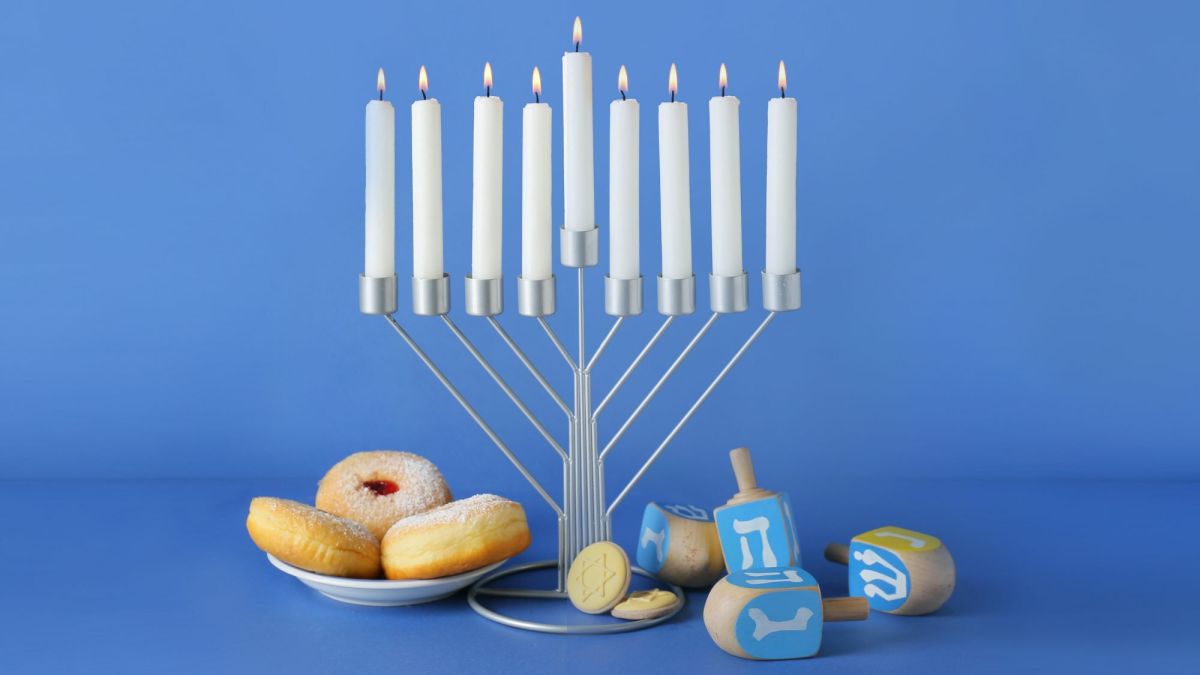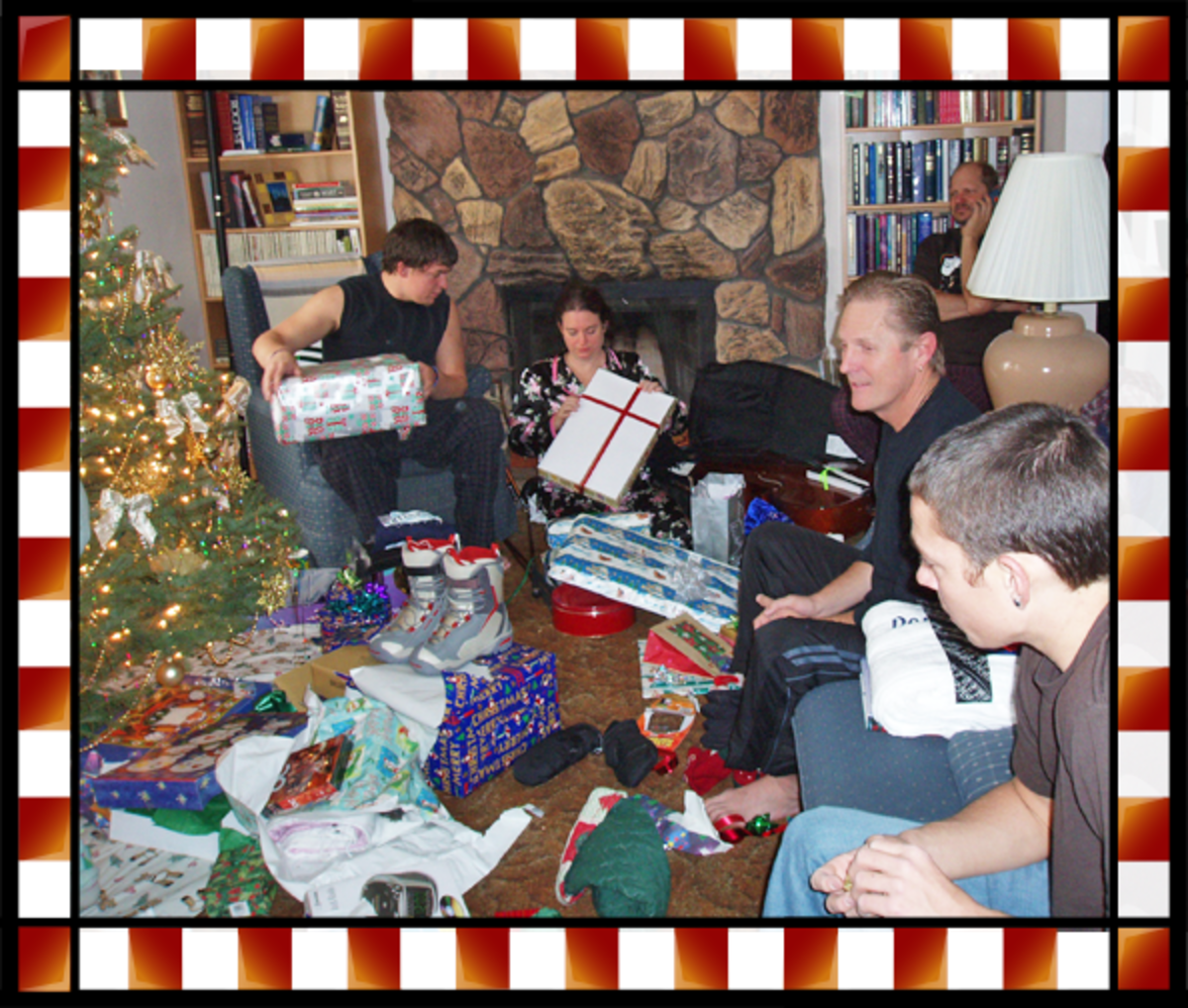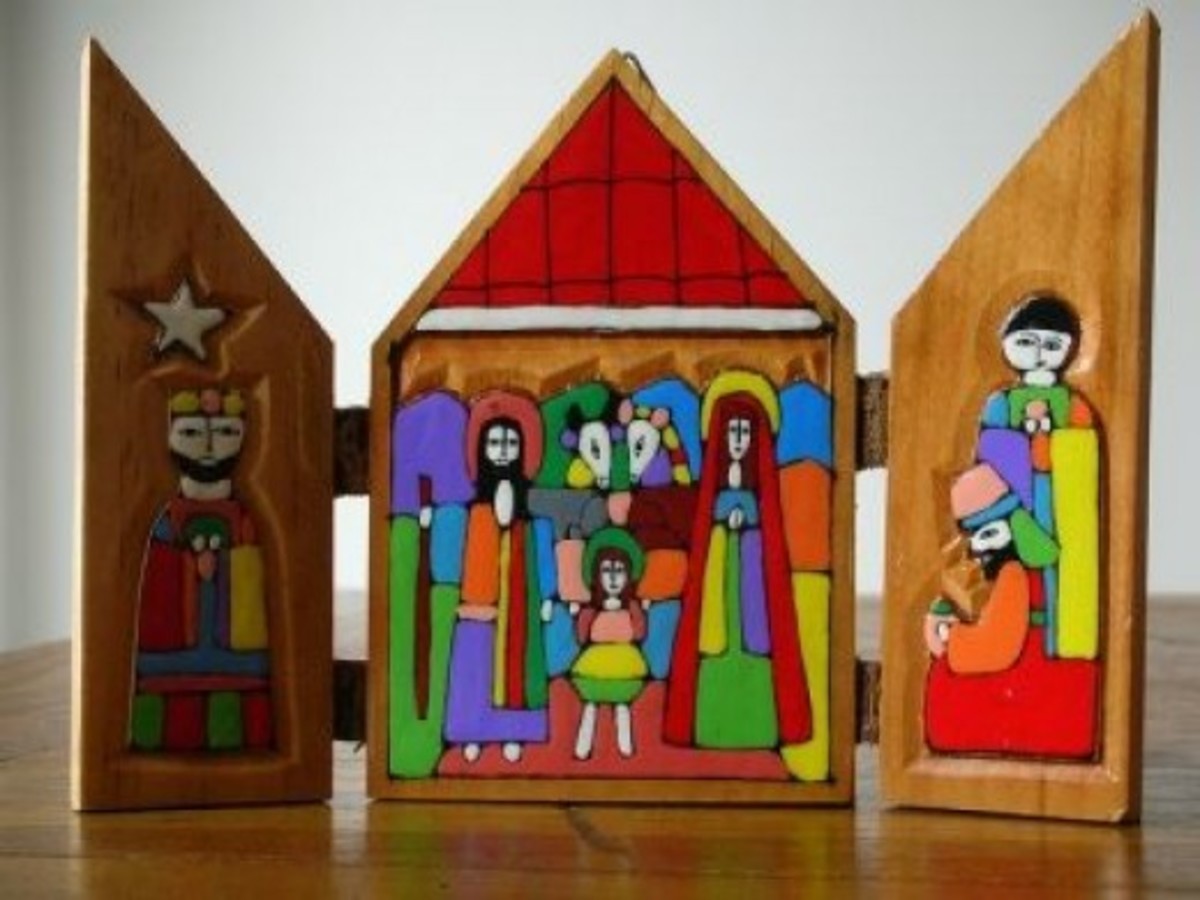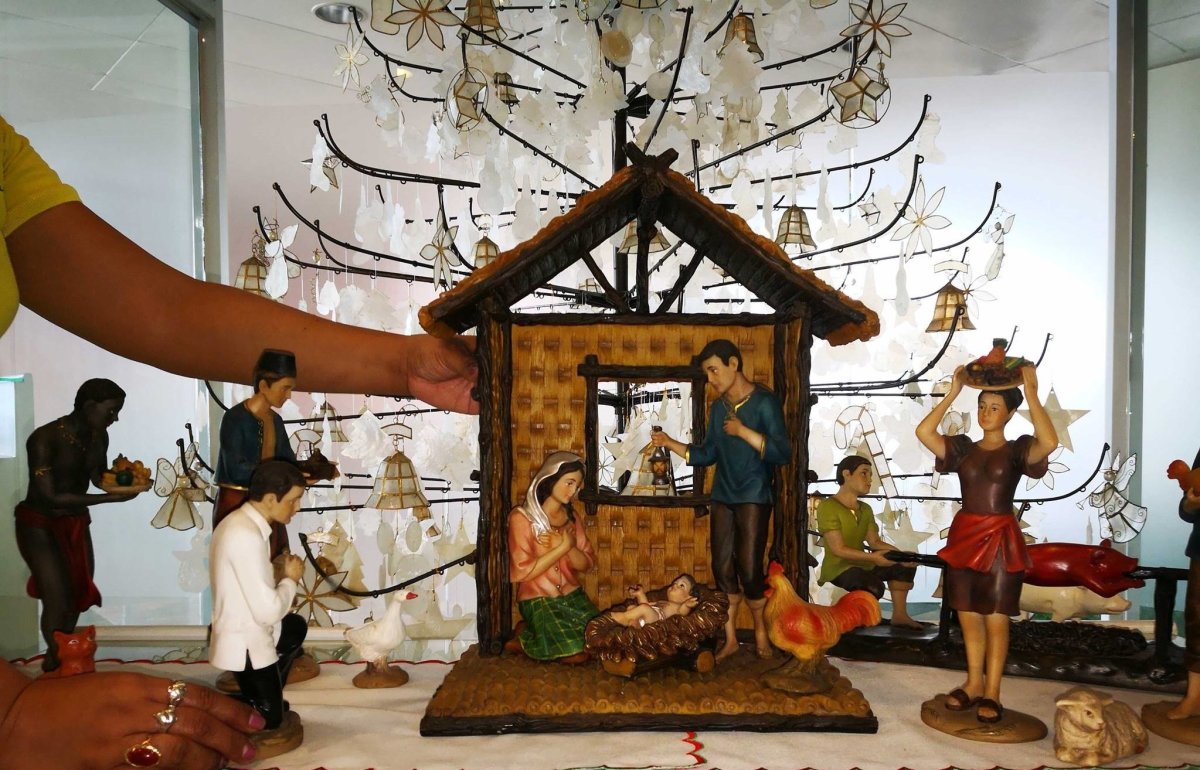Christmas & Hanukkah - How to Keep Traditions in an Interfaith Home
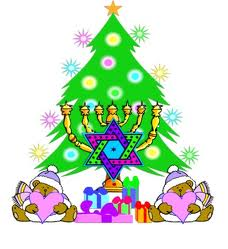
Choosing Between Christmas Hanukkah
Halloween has come and gone, and with Thanksgiving just a mere two weeks away, I find that my mind is already a whirl with thoughts about the holidays.
The holidays are meant to be a joyful celebratory time of year, spent in the company of our family and friends. A time of year for us to reflect on all that we have to be thankful for, and to bask in the warm fuzzy feeling of peace on the earth and good will toward all men; But even with all of that extra love and joy floating around in the atmosphere, they still manage to produce enough of their own holiday specific stress factors to fill a Santa Clause sized sack! In the next few weeks people all around the world will squabble over things like, Who's side of the family will we visit this year? and You spent how much money? They will for one day and one day of the year only, endure Uncle Chuck's rude behavior and bad jokes, silently, and with a smile plastered to their face, make an effort to be nice to that one brother or sister-in law that they secretly can't stand, and do their best to ignore the fact that cousin Stephanie's heathen children are....well, heathens. They will dutifully attend children's programs, office parties, and the obligatory dinner with their parents or in-laws, without complaint, even though their heads are pounding, and they have a mountain of work on their desk, that if not finished promptly could mean the difference between paying for this year's holiday extravaganza and bankruptcy. They will set budgets, set limits, and then make decisions that they will still be paying for next November, and after the clock strikes twelve on New Year's Eve, and the January credit card bills begin to pile up at the door like so many snow drifts, they will fall, exhaustedly back into their normal everyday lives, swearing, "Never again!" Then, just like the mother, who upon holding her newborn child for the first time, immediately forgets all about the pain of her fourteen hour labor, the fog of holiday amnesia will set in, and they will once again begin to plan for next year's holiday season.
Millions of people from all over the world, who are of varying races, religions, socio-economic and cultural backgrounds, will, in the next few weeks, willingly navigate some form of this hyper-intensive, fun-house styled maze, making decisions, some good and some not; and of all those people, only a handful will be faced with making the decision of which holiday to celebrate, Christmas or Hanukkah? The majority of those who are asking themselves the either Christmas or Hanukkah question, are interfaith couples or families like mine, where one spouse is Jewish, and the other is not. .
Statistics show that interfaith marriage is on the rise, and that perhaps fifty percent of all Jewish marriages are now interfaith. The couple in an interfaith relationship must deal with the same everyday problems and challenges facing couples who are of the same faith, but they must also deal with a few hurdles that are faith or religion specific. My husband is Jewish, and I am Catholic, and of all of those hurdles, I believe that the challenge of deciding what to do about the holidays was among the most difficult.
The December holidays are, for both Christians and Jews, full of not only religious implications, but deeply rooted cultural and familial traditions as well. In cases, such as with my husband and I, when both spouses come from closely knit families, each having their own time honored and cherished traditions, some of which are not only the stuff of our childhood memories, but are the handed down traditions and customs of grandparents and great-grandparents, they are a part of our heritage, a fraction of our identity, and the potential ripple effect created by choosing to remove either of them could have long term consequences that may effect relationships not only for the interfaith couple and their children, but within the extended family as well.
There are a large percentage of interfaith couples who will choose to have one or the other of the spouses convert to the other spouse's faith, or, they will come to an agreement that their children will be raised either to be Jewish or to be of a Christianity based religon. Both of these options, will for the most part make the, either Christmas or Hanukkah argument, null and void. There is another somewhat smaller group, who like my husband and myself, have chosen, to honor both of our faiths, heritages, customs and traditons, with the observance and celebration of both Christmas and Hanukkah. The decision to celebrate or to not celebrate either of the winter holidays is a very personal one, and it should not be made lightly or without consideration of it's effect on their partner, their children, and their family. Since whatever they decide will potentially be the cause of hurt feelings outside of their immediate family, it may be wise to seek the counsel of their parents, or even a member of the clergy. However, in the end the decision should be left to the couple themselves, who must make their choices based on what will work best for themselves and their children.
Great Gift Ideas For Interfaith Families
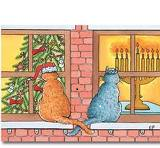
How We Decided To Celebrate Christmas & Hanukkah
For my husband and I, Making the decision to keep the traditions of both Christmas and Hanukkah, was the result of an on-going dialog that began early on in our relationship.
From those early months when we first began dating and throughout our courtship and our engagement, we had many very long conversations about our religious differences. Finding ourselves in total agreement that neither of us wished to convert, those discussions eventually turned to developing a strategy for dealing with those differences in our marriage, and more importantly, when raising children. Long before we said "I do," we had a game plan that included, mutual respect for each other's faith, the shared belief that our future children had the absolute right to know both sides of their heritage, and a willingness to work together to make this a reality. We all know that communication is the key in any good working relationship, but for the interfaith couple who must face these sorts of challenges, it is imperative. Discussing our feelings about these issues, openly and honestly, before we were married, and working together to reach a compromise that worked for both or us, allowed us to enter into our marriage with our eyes wide open, each of us fully aware of where the other stood when it came to our differing faiths, and where we stood together as a couple. Having hammered out the specifics between us, we were thus able to avoid the pitfalls of misunderstanding, resentment, and hurt feelings.
The planning and preparation that is associated with the celebration of even one of the winter holidays can be exhausting. The prospect of fitting both of them into a mere thirty one days may feel overwhelming. Not knowing the origin or the traditions of one of those holidays will make it seem absolutely impossible. The answer to this problem is education. When we began our life together, I knew nothing about the Maccabees, the miracle of the oil, or how to play dreidel, while the only thing my husband really knew about Christmas was that a jolly fat man in a red suit was supposed to, in a single night's time, deliver presents to millions of children all over the world by sliding down their chimmneys, and then make his grand escape in a sled that was pulled by flying reindeer. We realized early on, that if we were to make this work, we both had a lot to learn!
To help my husband better understand the importance of Christmas to my church and to my faith, on the Christmas Eve before our wedding, I read him the Christmas story, explained my views on the importance of Christmas to my church and to my faith, and he attended Christmas Eve services with me that night. For my part, I read about the Maccabees, I learned about the miracle of the oil, and my mother-in-law taught me to make the perfect potato latkes. By discoveringg the real meaning of the the holidays, and knowing the stories behind the traditions themselves, we found it easier to appreciate and respect each other's beliefs and to become involved in the celebration.
Overlapping holiday schedules, how to explain your newly adopted holiday traditions to your parents and extended family, and the grandparent issues that arise once you begin to have children, are some of the inherent challenges to an interfaith family who choose to celebrate both Christmas and Hanukkah. If you wish to maintain a harmonious balance, these issues require paitience and diplomacy. We didn't resolve all of our holiday related issues that first year, or even in the next, it would take a few years to get the hang of our new tradition of celebrating both Christmas and Hanukkah. Remembering that life is fluid so nothing is ever set in stone, and that as our family grows and changes, so do our needs, has helped us to keep the lines of communication with our extended families open, and to maintain that dialog we began all those years ago, which in turn helps us to deal as a couple with any new issues or conflicts that may arise from year to year. .
Making the traditions of both Christmas and Hanukkah fit comfortably into one family may seem to be a daunting task, but for our family it is the right choice, and as my husband and I have learned over the last twenty or so years, with the right amount of enthusiasm, a willingness to learn, and the ability to compromise, it can be readily achieved, and is well worth the effort.


